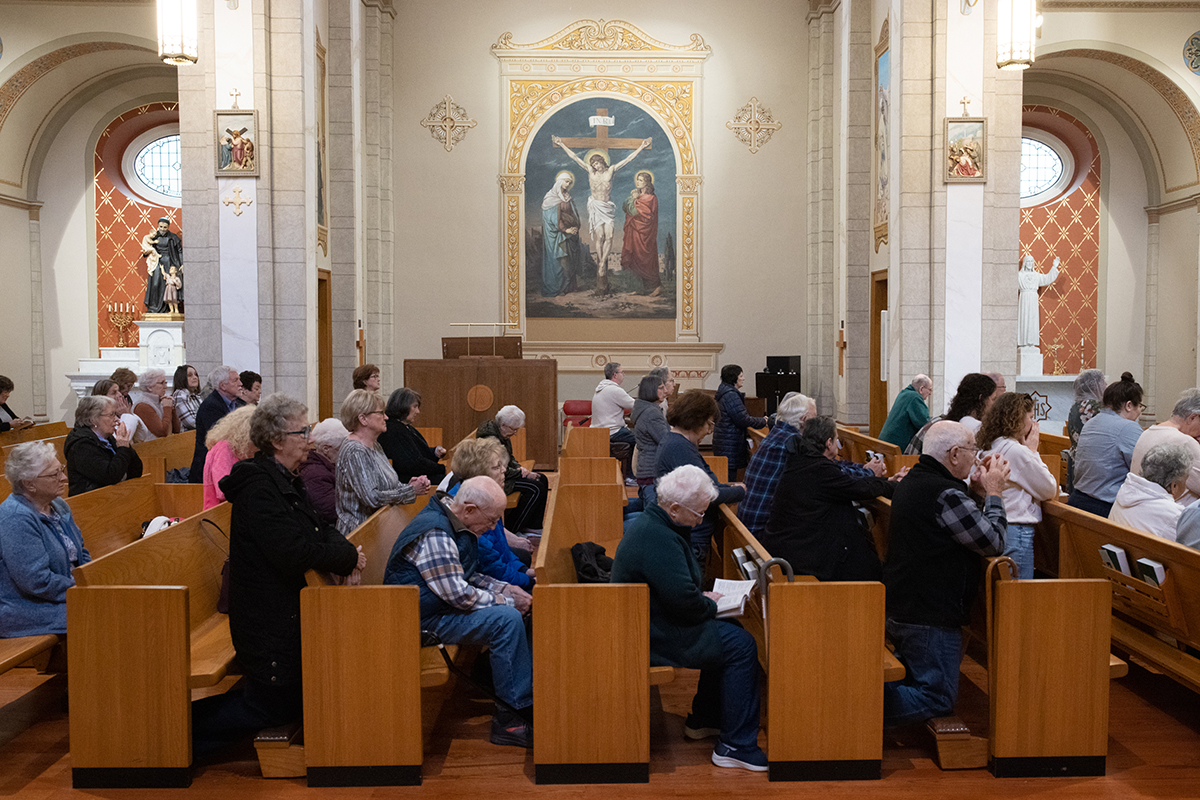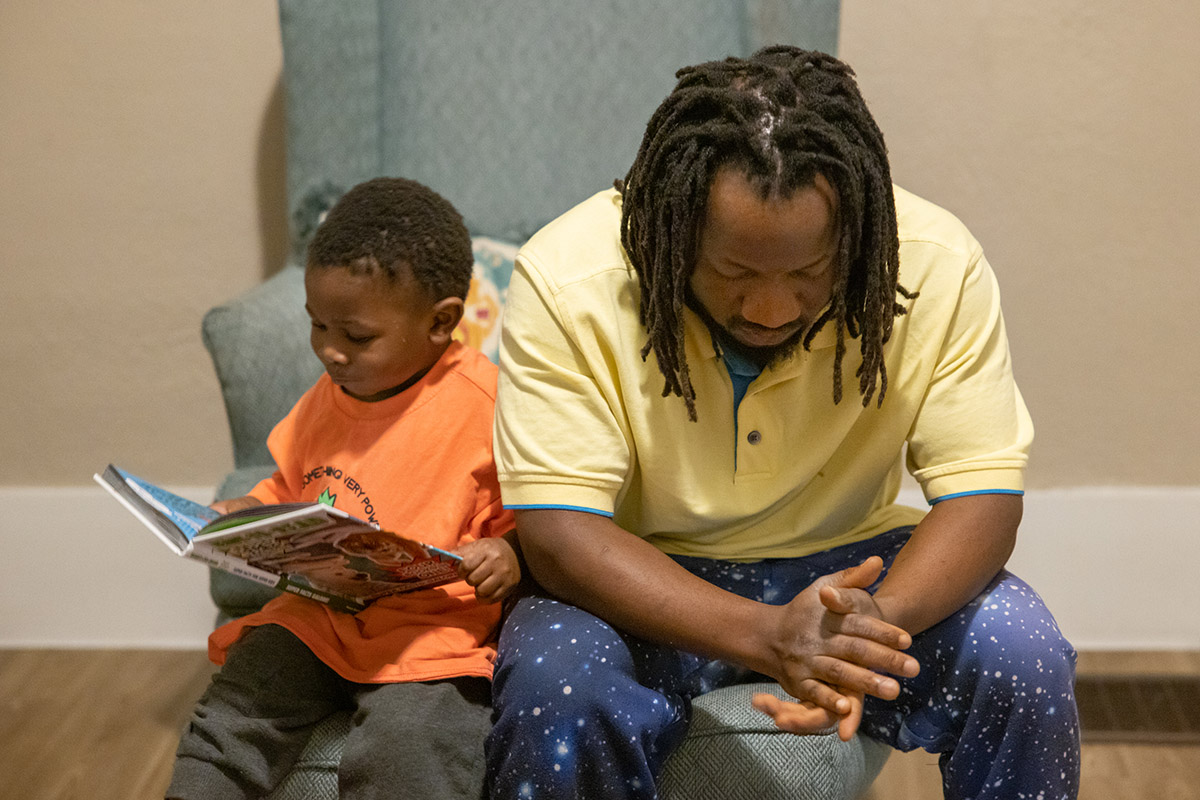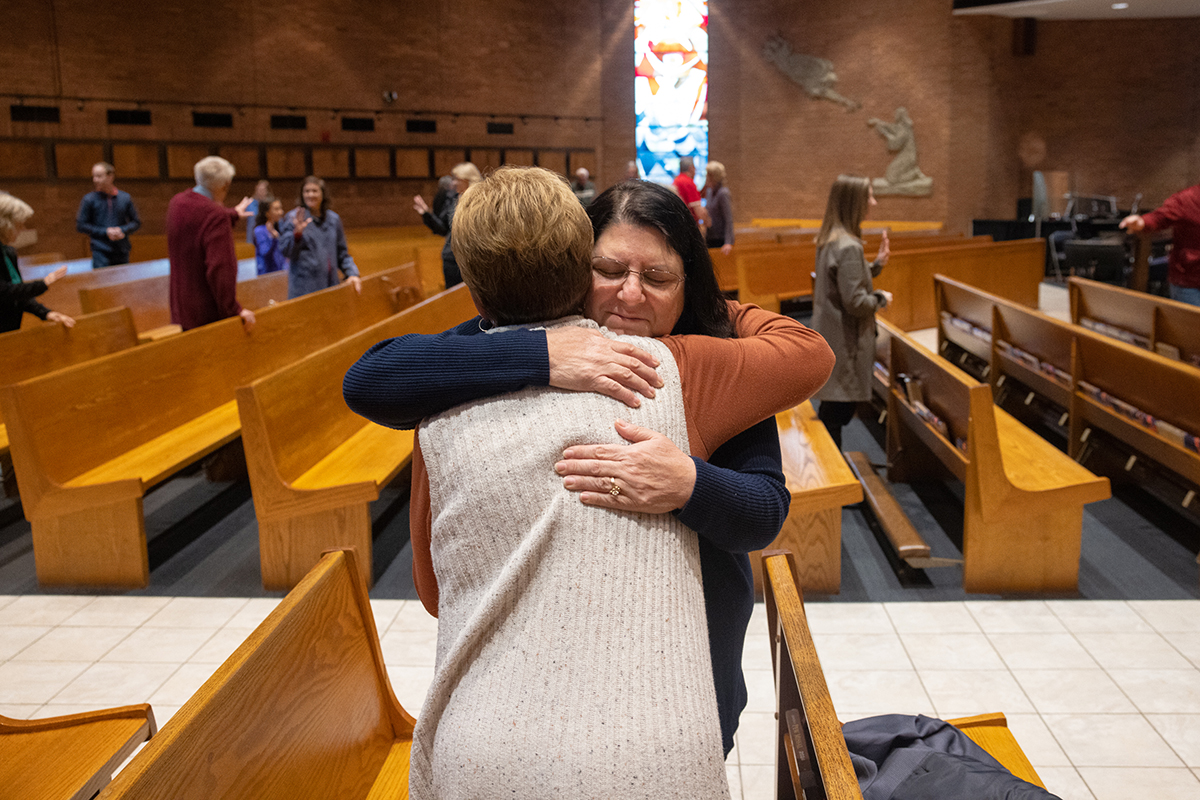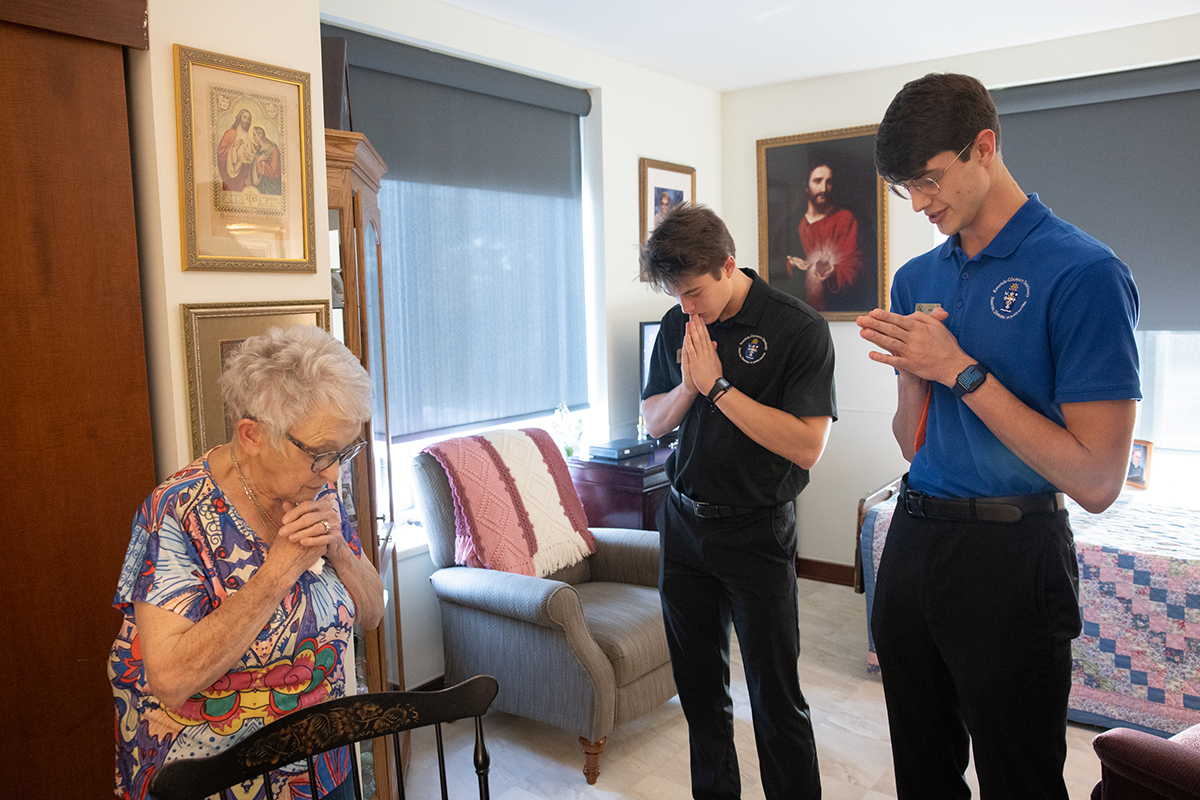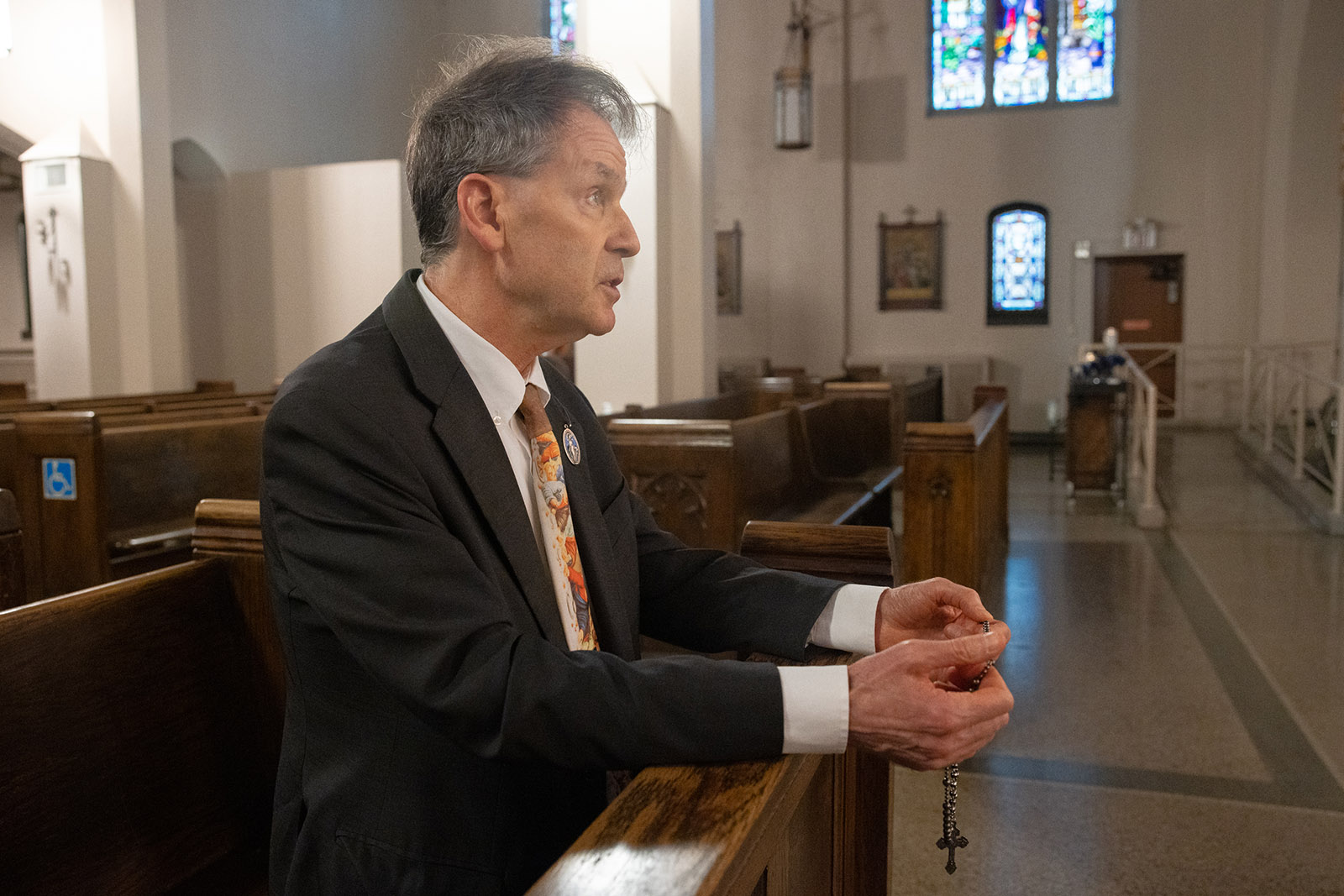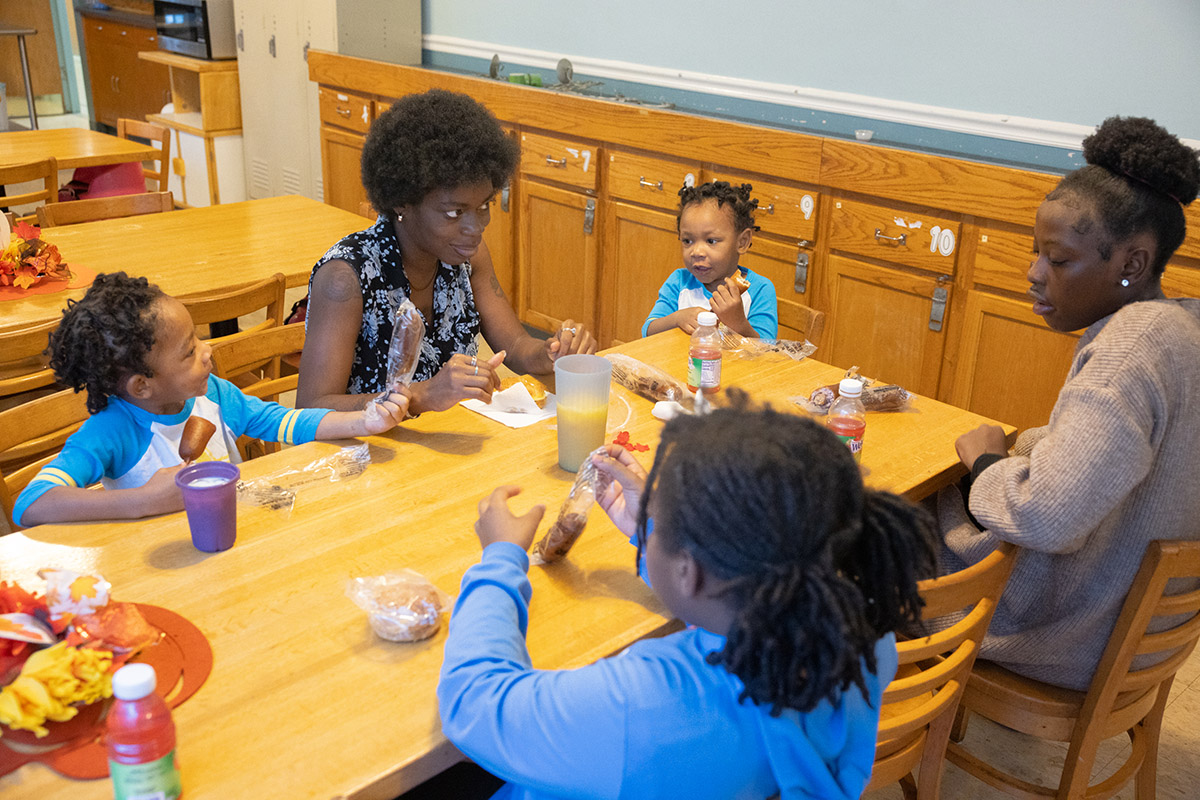Archdiocese provided spiritual comfort to German, Italian POWs
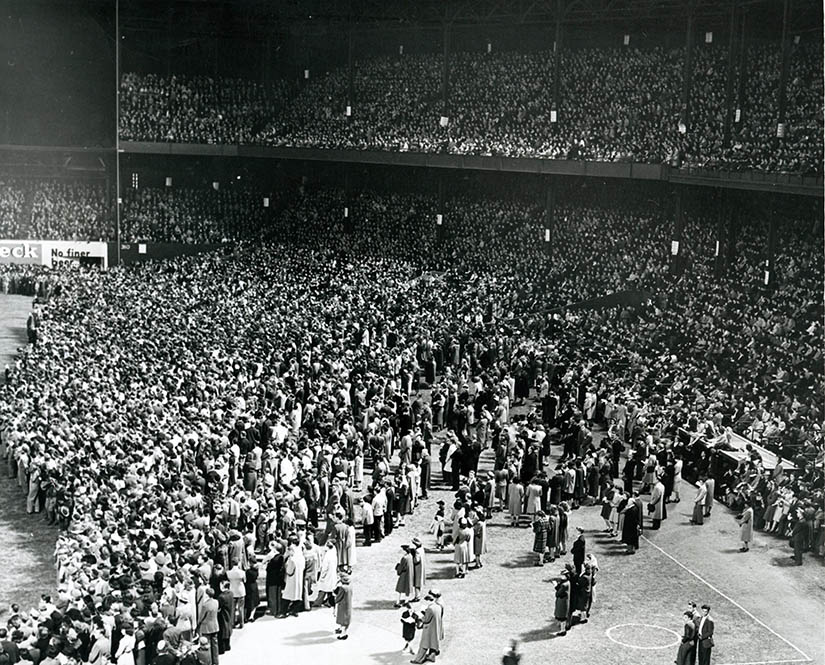
Archdiocese provided playing cards, athletic equipment, prayer books, rosaries to prisoners of war in Missouri
Priests from the Archdiocese of St. Louis and military chaplains tended to the spiritual needs of prisoners of war at World War II POW camps in the archdiocese, which at the time included what is now the Dioceses of Springfield-Cape Girardeau and Jefferson City.
Msgr. John P. Cody summarized the work in a letter to the Franciscan provincial in April 1945 seeking a priest to serve as chaplain at an internment camp in Louisiana, Missouri. “It is truly priestly work as those poor German prisoners are badly in need of some spiritual consolation,” Msgr. Cody wrote.
Missouri housed 15,000 prisoners of war from Germany and Italy inside state lines in about 30 camps, originally on military bases, according to “The Enemy Among Us: POWs in Missouri During World War II” by David Fiedler. About a third of the camps were in the Archdiocese of St. Louis, according to materials in the archdiocesan archives.
A U.S. Army captain wrote to Msgr. Cody near the closing of the prisoner of war camp in Weingarten, Sept. 17, 1945, expressing his appreciation for the help of the archdiocese. “In my everyday association with these men I came to know that they were most grateful for your efforts and your interest,” the captain wrote.
He added “my sincere thanks for your invaluable assistance and attention to the spiritual and material welfare of the prisoners. I am thankful, perhaps for selfish reasons, because your interest and assistance made my duties more pleasant and taught me that with a little patience Christ’s teachings could be read into Army regulations. The paradox of internment of men born equally free became less sharp and easier to cope with and comprehend.”
The archdiocese provided items such as playing cards, soccer balls, volleyballs, table tennis equipment, prayer books in German and rosaries to prisoners at Ft. Leonard Wood, for example. By Aug. 4, 1943, the camp there had 2,000 prisoners, including some 824 Catholics, captured in the campaign in Africa. Christmas messages were given to the prisoners from the pope. And the Vatican worked to send radios to the camps. Some of the camps had Catholic priests who were held captive.
Father Charles J. Meyer, a 1st lieutenant and chaplain at Ft. Leonard Wood, wrote Msgr. Cody on Aug. 12, 1943, thanking him for gifts of athletic equipment for the prisoners. Father Meyer added that “the response seems to be getting better among the prisoners regarding Sunday Mass. Last Sunday the chapel was completely filled. Therefore I had to speak loudly, which attracted the attention of some who were engaged in athletics some distance from the chapel. Many of them left their games and came to investigate. They stayed to pray.”
In a letter April 6, 1943, to the apostolic delegate to the United States, Msgr. Cody wrote that the Italian prisoners at Ft. Leonard Wood were being treated well. The archdiocese arranged for several musical instruments to be delivered to them and English grammar books for prisoners studying English.
There was some trouble in the camps for German prisoners at Ft. Leonard Wood and in Chesterfield due to the work of the Gestapo (German state secret police), Msgr. Cody wrote. “Catholics have actually been forbidden under pain of death to confess to an American Army chaplain,” he wrote, adding that many of the men were afraid to identify themselves as Catholic in their homeland.
The chaplain in Chesterfield had some struggles with the camp commander over the men practicing their faith, but that was resolved.
On Sept. 27, 1945, the apostolic delegate to the United States, Archbishop Amleto G. Cicognani, wrote to Msgr. Cody that the cooperation with the work of the Holy Father for prisoners of war “has made possible a more complete realization of the Supreme Pontiff’s charitable program in their regard. I am equally confident that these men will be more deeply attached to their faith and to Holy Mother Church which has comforted them in their hour of affliction and suffering.”
Priests from the Archdiocese of St. Louis and military chaplains tended to the spiritual needs of prisoners of war at World War II POW camps in the archdiocese, which at … Archdiocese provided spiritual comfort to German, Italian POWs
Subscribe to Read All St. Louis Review Stories
All readers receive 5 stories to read free per month. After that, readers will need to be logged in.
If you are currently receive the St. Louis Review at your home or office, please send your name and address (and subscriber id if you know it) to subscriptions@stlouisreview.com to get your login information.
If you are not currently a subscriber to the St. Louis Review, please contact subscriptions@stlouisreview.com for information on how to subscribe.

